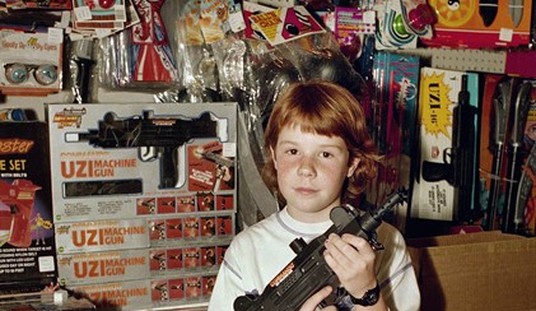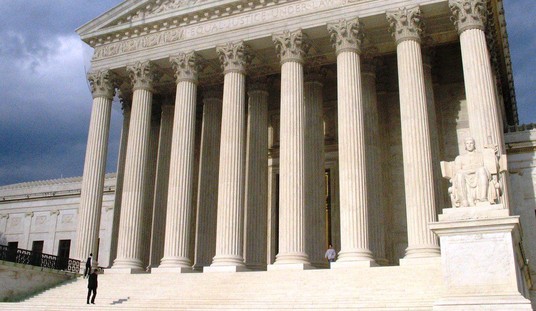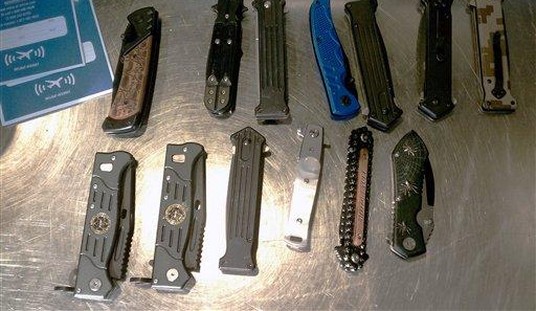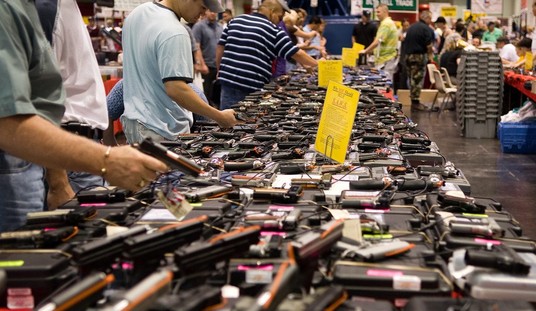Former top Senate staffer, Capitol Hill gun advocate decries how the Department of Veterans Affairs screens America’s veterans as mentally incompetent, then targets them for gun confiscation.
“Since the mid-1990s approximately 160,000 veterans have lost their guns,” said Michael Hammond, the legislative counsel for Gun Owners of America. GOA is a national membership organization of 300,000 Americans dedicated to promoting their Second Amendment freedom to keep and bear arms.
Hammond said when William J. Clinton was president, he directed the Alcohol, Tobacco and Firearms department to effect the confiscation of firearms if a person is deemed mentally defective by a psychiatrist pursuant to the Gun Control Act of 1968.
The 1968 Gun Control Act says: “It shall be unlawful for any person to sell or otherwise dispose of any firearm or ammunition to any person knowing or having reasonable cause to believe that such person . . . has been adjudicated as a mental defective or has been committed to any mental institution.”
The former Capitol Hill staffer, who twice ran for Congress in New Hampshire, said, “Most people think this part refers to incompetency by reason of being found not guilty or not competent by a court of law, but it has been determined by the Clinton administration to open to interpretation.”
This directive amounts to disarmament of veterans by the government agency dedicated to supporting and protecting veterans, he said.
“Veterans are the largest group of individuals to be victimized by Clinton’s decision,” he said.
“When veterans turn to the VA for medical services, a psychiatrist has the power to deem someone incompetent and appoint a fiduciary to manage their affairs,” he said.
Once an individual is under the control of the VA-appointed fiduciary, their name is sent to the Federal Bureau of Investigation’s database of criminal and mental health records, he said.
“By virtue of a psychiatrist report, guns may be confiscated,” he said.
David Bellavia, a Silver Star recipient for his heroism at Fallujah, Iraq, said. “If a veteran goes to get help at the VA they are at risk of losing their second amendment rights.”
The former Army staff sergeant said there was a time when service men and women were trusted to carry their own gun, but since the Vietnam War veterans have been unfairly profiled as criminals, psychologically broken and untrustworthy.
“Today we have a situation where a combat soldier is loaded with every weapon known to man willing to bleed and die for our country, yet the government is going to deny us rights that we have earned,” he said.
Bellavia, who served with the 1st Infantry Division’s 2nd Battalion of the 2nd Infantry Regiment, said it was common place for soldiers in the combat zone to be treated with psychotropic medication.
“Medication was handed out like candy,” he said. “If the medication was so dilapidating there would be scores of violence between the soldiers, when there is not.”
Why is there a change in trust for veterans when they come home, he asked.
“Soldiers are trusted with all sorts of weapons in combat, yet they not trusted at home with their own gun,” he said. “Going to the range often acts as a therapeutic measure. Removing that right, takes away our identity.”
Bellavia said that at the end of their tour of duty, combat soldiers are mandated to undergo a psychotherapist evaluation. “All the soldier wants to do is go home, not spend another five to 10 days in a mental hospital,” he said.
This arrangement creates a dishonest environment, said the man, who was nominated to recieve the Medal of Honor.
He said some of the questions posed by the evaluator included: Have you seen a dead body? Did you feel your life was at risk? Did you see blood? “If a soldier answers ‘yes’ to any of these questions, they are automatically targeted for a mental health condition,” Bellavia said.
Part of the problem is that a monetary value has been placed on a diagnosis of a mental condition, he said.
“The more crazy you are, the more money the VA makes,” he said.








Join the conversation as a VIP Member